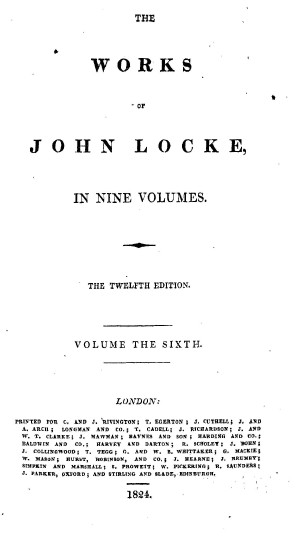
Part of: The Works of John Locke in Nine Volumes The Works, vol. 6 (The Reasonableness of Christianity)
- John Locke (author)
This volume contains three pieces by Locke on the reasonableness of Christian belief.

This volume contains three pieces by Locke on the reasonableness of Christian belief.